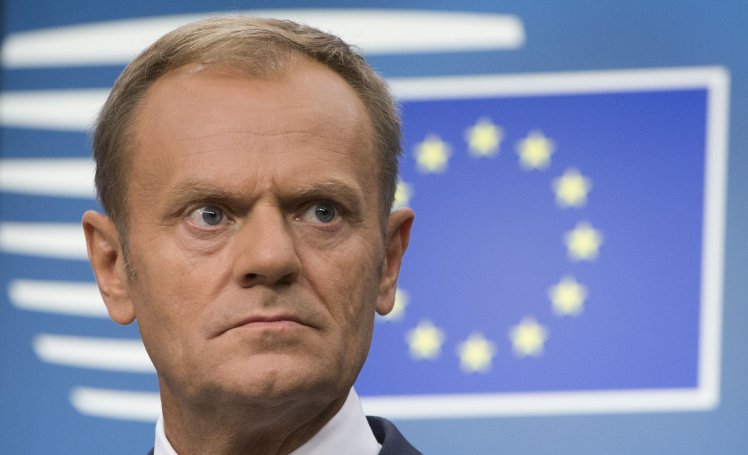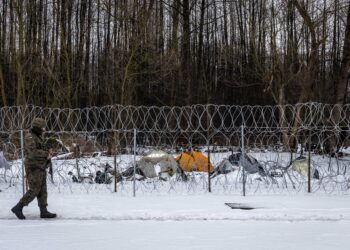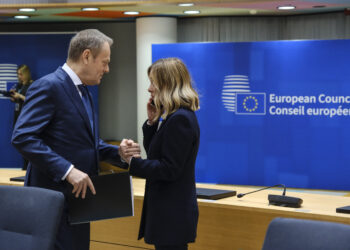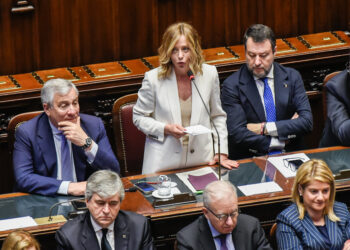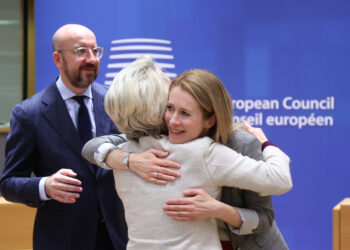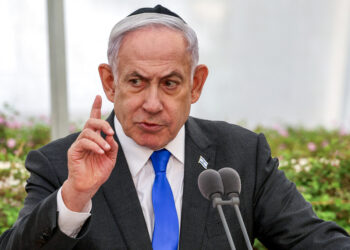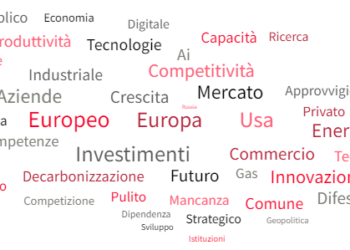The President of the European Council Donald Tusk is normally a calm man, balanced, with his ideas, of course, but normally seeking consensus. His job requires it, he must be able to hold together 28 heads of state and government that often leave for opposite bribes. In these first three years the Polish succeeded in this intent, and he also gained our personal esteem.
Everything has changed since last Tuesday. Will it depend on the new Polish government? Will it depend on a bad mood of the moment? Some personal frustration? Extremist lighting? From Tuesday Tusk divides the world into two, sometimes between good and bad, others between different positions due to geography, others almost seems to describe his idea of a human nature aimed at constant contrast. It was a crescendo that, for now, has come to the non-trivial peak of explaining that Europe has enemies. And he was talking about military defense, a just delicate topic.
He started on Tuesday, we said, with that note to the heads of State and government on migrants in which he divided Europe in two: those willing to give refuge to refugees and those who did not. But it was not an analysis, it was his acceptance of something innate, immutable, about which the Union can not do anything, and so it is better to adapt. 24 governments were raised against this approach, and the good president took a few steps back, rewriting the letter from the beginning.
Today he arrived at the European Council saying that “when we talk about monetary union we are divided between North and South, and when we deal with migrants the division is between East and West”. He apologized for this “geographic simplification”, as he himself described it. But he did it anyway, and he put it in writing.
Then he switched to Brexit. He is the president of the European Council, he knows what are the important issues on the table, and he missed none. Here too the theme of the division was the leitmotiv: “I have no doubts – he told his colleagues in the assembly, excluding, we imagine, Theresa May, who also was present – that the real test for our unity will be the second phase of negotiations for Brexit “. He was not certain, as he did in the past few months, that the EU will show unity, no, he said that we must see if there is. He is not wrong, what he says is absolutely true, but it must be said otherwise.
The final firework (which as long as it remains a firework is not so dangerous, but as we talk about things that make other kinds of fires, you can worry) has arrived when there was yet another celebration of the agreement for the Pesco, a first, important step towards a decently coordinated European Defense, the political masterpiece of Federica Mogherini, which should be acknowledged as a merit. The Italian has succeeded in its intent also because she has always used a very prudent, assertive but not adventurist vocabulary. Above all, precise.
Tusk no, ah, he speaks hairless about the language, and explains, during the celebratory speech, that “Pesco is not only good news for us, but it is also good news for our allies and it is bad news for our enemies”. Now, “enemies” is a strong word, which has a clear meaning of frontal opposition, in this specific case then means a military confrontation, also Tusk was speaking next to a general loaded with medals and spangles. The European Union has never said that it has any enemies to defend itself from, Mogherini has never said, and she has in mind another role for the EU’s foreign and security policy.
Tusk seems more and more, at this stage evidently complicated for him, his namesake Donald (Trump) from overseas. That one talking this way became president of the United States, it is doubtful that, given the Polish electoral deadlines coinciding with the end of his mandate in Brussels, even the European Donald may be working on his political future. On positions very different from those he had until today.
